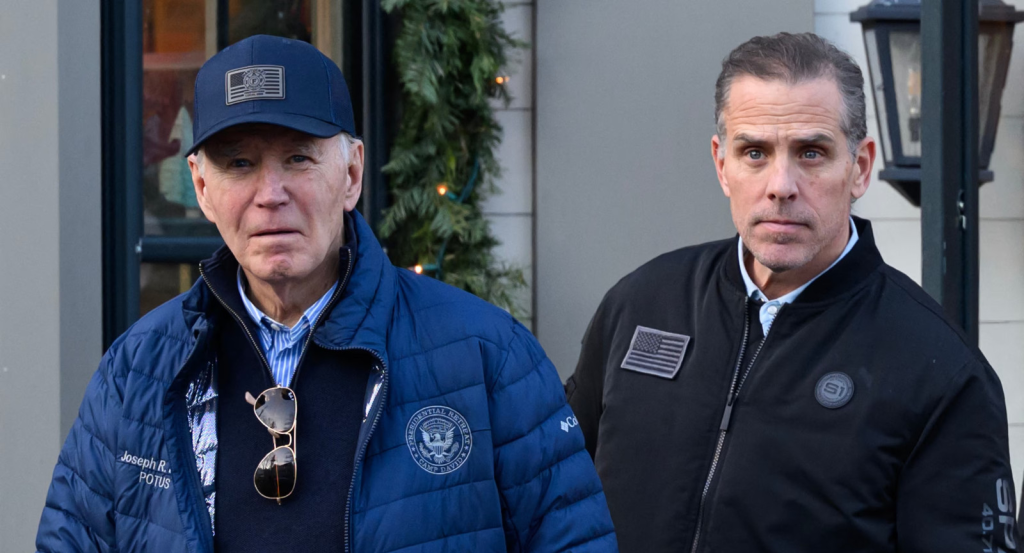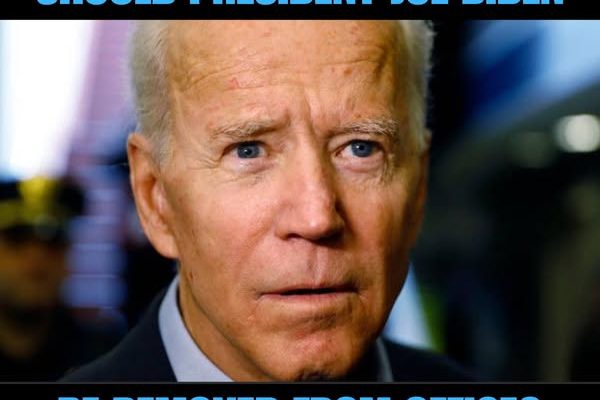
In a surprising legal maneuver, special counsel David Weiss filed a motion in the California federal court overseeing Hunter Biden’s tax case, urging the judge not to dismiss the charges despite the presidential pardon announced by Joe Biden on Sunday.
The pardon, which spans from January 1, 2014, to December 1, 2024, covers Hunter Biden’s June jury-trial convictions for lying on a federal form about his drug use when purchasing a handgun. It also includes his September conviction on nine counts related to his failure to pay at least $1.4 million in taxes between 2016 and 2019.
The first son had faced a maximum of 17 years in prison for his tax offenses.
“The charges in his cases came about only after several of my political opponents in Congress instigated them to attack me and oppose my election,” Hunter Biden claimed in a statement issued along with his pardon announcement.
In a Monday court filing in a federal district court in California, Weiss wrote, “There was none and never has been any evidence of vindictive or selective prosecution in this case.”
“The defendant [Hunter Biden] made similar baseless accusations in the United States District Court for the District of Delaware. Those claims were also rejected,” he added.
“In total, eleven different [federal] judges appointed by six different presidents, including his father, considered and rejected the defendant’s claims, including his claims for selective and vindictive prosecution.”
The special counsel’s office requested that the judge refrain from dismissing the tax charges outright and instead close the docket with a notation that a pardon had been granted. This approach would preserve the case record for future reference.
“[I]t has been the practice of this court that once an Executive Grant of Clemency has been filed on the docket, the docket is marked closed, the disposition entry is updated to reflect the executive grant of clemency, and no further action is taken by the Court,” Weiss wrote.
He also noted that Hunter Biden has not yet filed the pardon with the court, and his office has not reviewed it either.
“If media reports are accurate, the Government does not challenge that the defendant has been the recipient of an act of mercy. But that does not mean the grand jury’s decision to charge him, based on a finding of probable cause, should be wiped away as if it never occurred. It also does not mean that his charges should be wiped away because the defendant falsely claimed that the charges were the result of some improper motive,” Weiss added.
He concluded, “No court has agreed with the defendant on these baseless claims, and his request to dismiss the indictment finds no support in the law or the practice of this district.”
Mark Osler, an expert in presidential pardons at the University of St. Thomas, said in an interview with ABC News that Weiss’s filing raises “a technical issue — either way, the case goes away — but an important one.”
“[Prosecutors] want the indictment to remain on the record,” he said.
The Hill, meanwhile, reported, “U.S. District Judge Mark Scarsi, who is overseeing Hunter Biden’s tax case in California, has not yet ruled on dismissal.”
The news outlet further pointed out, “U.S. District Judge Maryellen Noreika, the federal judge in Delaware overseeing Hunter Biden’s gun case, said she intends to terminate the proceedings against him once the pardon is docketed but asked Weiss to inform her whether his office objects to dismissal in that case, too.”



